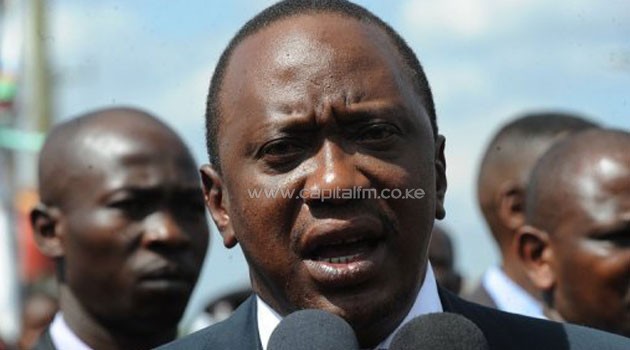
Kenyatta, who was elected president in March, has long argued that his trial would hamper his running of the country/FILE
Kenya’s Foreign Secretary Amina Mohamed said even though amendments to rule 68 of the Rules of Procedure and Evidence had been agreed within the working group, Kenya forced a caveat to delay enforcement of the rule in the current cases.
This means the cases against President Uhuru Kenyatta and his deputy William Ruto will not make use of evidence from witnesses who may not be present in court.
The proposed provision would have meant use of evidence from witnesses who are deceased, or were not willing to appear in court.
The new insertion says “…amendments to the Rules of Procedure and Evidence shall not be applied retroactively to the detriment of the person who is being investigated or prosecuted…”
“Through amendments to rule 68, we have achieved that. We have also succeeded in petitioning for a special session of the ASP to discuss Article 27 (on immunity for sitting heads of state). That special session could sit in February at the end of the 90 period required under law,” she explained.
Mohamed said: “We have achieved what we came here to do. Through amendments to rule 134 (on allowing a witness to be represented by counsel without being physically present in court), the President and the Deputy President will now not be required to be physically present in court.”
She disclosed that there was unanimous support from the African continent and other states, and was confident that the amendments would easily sail through the plenary session by Thursday at the latest.
“It has never been practice to re-open language agreed at the working group level. Plenary is just a formality.”
The amendments were later passed late on Wednesday at plenary.
On Tuesday, the working group agreed to amend rule 134 to excuse a sitting president, deputy or any other government official performing extra ordinary functions from being physically present at trial. Such persons shall be represented by counsel.
The adoption of the new rule 134 provided a window for an application before ICC judges for the two leaders to be excused from continuous presence at trial.
“The Trial Chamber shall consider the request expeditiously and if alternative measures are inadequate, shall grant the request where it determines that it is in the interest of justice and provided that the rights of the accused are fully ensured,” Attorney General Githu Muigai said on Tuesday.
“In our view, this amendment has secured a fine distinction between the immunity of a head of state which will be dealt with at an opportune time and attendance, which is procedural,” Muigai said.
He said the rules were not inserted to the Statute for the here and now, but were for the benefit of all members of the assembly. “The court must be assisted to improve its procedures.”














































